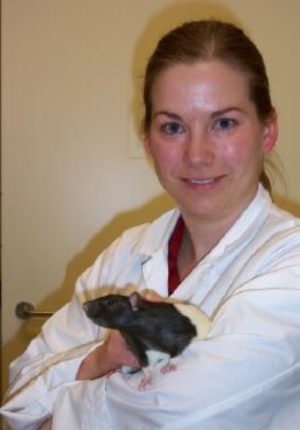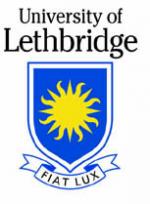Innovation Anthology #38: Assistant Professor, Departments of Opthamology and Physiology, Faculty of Medicine and Dentistry

Rats seem to recover better from brain injury that occurs during infancy than if it occurs later in life. But there are still problems with the healing.
For example, as part of her postdoctoral research at the Canadian Centre for Behavioral Neurosciences in Lethbridge, Dr. Nicole Sherrin has looked at what happens when only one side of the frontal cortex is removed.
She expected if there was damage to the right brain, the left side of the rat’s body would be affected, and vice versa.
However, she was surprised to find instead, the rats developed a motor problem in both their front paws, and the damage wasn’t even to the motor cortex.
DR. NICOLE SHERRIN: Well it could be that in fact the other side of the brain has reorganized to compensate for the damaged side, and this has actually somehow created a problem in the motor cortex, perhaps by cell axons which aren’t supposed to be there growing in, or connections not being pruned away during development.
Dr. Sherrin has found that the nerve axons are no longer crossed the way they should be, so as one side of the brain recovers, it doesn’t exert the proper amount of control that it should over the other side of the body.
Thanks today to The University of Lethbridge.
FOR INNOVATION ANTHOLOGY, I’M CHERYL CROUCHER
Guest
Yves Sauve, PhD,
University of Alberta, Edmonton, Alberta, Canada,
Sponsor
University of Lethbridge
In 2007 The University of Lethbridge celebrated its 40th anniversary. The U of L campus is home to the world renowned Canadian Centre for Behavioral Neuroscience. The University is also a centre of expertise on water and remote sensing.
For more interviews with University of Lethbridge researchers, check out the website for Innovation Alberta. (2001-2008)

Program Date: 2007-06-07